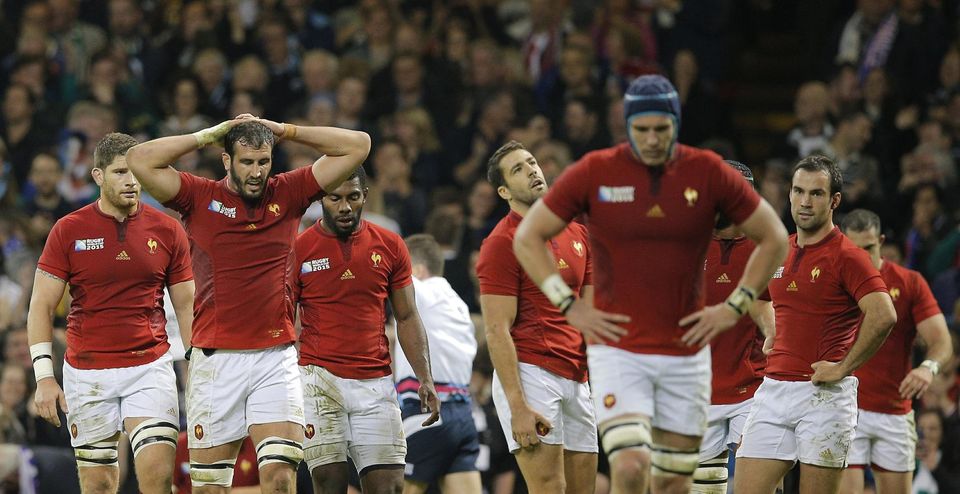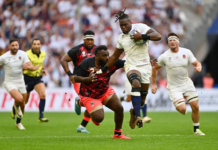Quarter finals of the Rugby World cup done and dusted!! For the first time in history none of the northern hemisphere teams have made it into the top four.
All four quarter-finals were matchups between northern and southern hemisphere teams, which the four southern giants New Zealand, South Africa, Australia and Argentina were all successful. This brings into focus the quality of rugby put on show by the northern hemisphere teams. The Northern hemisphere is led by the 6 teams that compete in the RBS Six Nations tournament, of which two teams failed to advance beyond the pool stages of the competition.
England- As the primary hosts of RWC 2015 England went into the tournament as one of the more favored teams going into the tournament. However they became the first English team in 8 world cups to not advance beyond the pool stages and also happen to be the first host nation to not qualify. Despite having the home support, England seemed to lack the ‘X’ factor in their performances to advance in the tournament. The hosts had the misfortune of falling into the group of death where they had to face up against Australia as well as Wales at the pool stage.
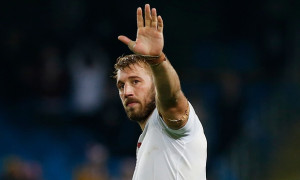
The hosts suffered their second defeat the following week when they faced up to an in-form Wallaby side. England were simply out-classed by the Australians and lost 33-13. They were out-muscled in the set-pieces and breakdowns and were once again indisciplined conceding 9 penalties, four of which were in kicking range. In addition, England struggled to the deal with the Wallabies mercurial back-line who carved up the English defense on numerous occasions. Australia was in a similar position to what England were in their game against Wales, the difference however was the Wallabies ability execute their game plan to perfection and their ability to close out the game.
Scotland- Of the major Northern hemisphere teams Scotland was perhaps the closest to make it through to the semi- finals. The Scots had played fairly well thus far but their first setback came early in the tournament when they were overpowered by improving Springbok team who dominated the possession and territory. Scotland struggled against the much bigger in the set pieces but held their own around the breakdown.
They then suffered their second loss in the quarterfinals against the Wallabies in what turned out to be controversial episode. A number of disputable calls by referee Craig Joubert have had the rugby community buzzing in the aftermath. The first call to spark conversation was, an intentional knock forward by Sean Maitland, where upon review by the TMO, Maitland was sent to the bin. It was a marginal call but according to the letter of the law the referee was well within his rights to have the offending Scotsman sit out for 10 minutes. The disadvantage cost Scotland a converted try and nearly a second one if not for a knock- forward by Australia which saw the try disallowed.
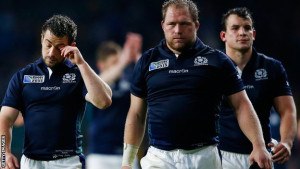
Wales- Wales were perhaps the unluckiest team in this world cup. In addition to having the hardest draw of the tournament the secondary host nation lost close to 10 players prior to and during the tournament. All through the tournament coach Warren Gatland had to switch up his back line due to injuries. With virtually everything of the World cup going against them, the Welsh left everything on the field.
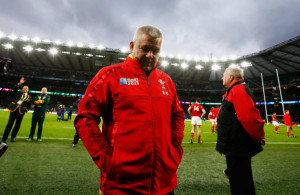
In their last game of the pool stage, Wales went up against an in-form Wallaby side, playing for the top spot of pool A. They did very well all through the game controlling the possession and territory in the game but conceding 13 penalties of which 9 were in their own half eventually costing them the game. It must be mentioned though that their defensive effort was exceptional, preventing the Wallabies from crossing goal line. Wales spent nearly 12 minutes inside the Australian 22m, with a 2 man advantage with Will Genia and Dean Mumm in the sin bin, however their inability to convert the pressure they were putting on the Wallabies resulted in them falling short.
In their quarter final against the Springboks, Wales were again put under immense pressure and did well to sustain it for 75 minutes of the game not allowing South Africa to cross their goal line until a bit of magic from Duane Vermeulen from the back of a scrum sent Fourie Du Preez over to take the game 23-19. In addition to making 197 tackles through the 80 minutes, Wales missed 17 tackles and conceded 12 penalties, 7 of which were within kicking range.
France- France was overpowered by Ireland in the pool stage and completely outclassed by what was nearly a perfect performance by the All Blacks in the quarter finals. The Irish completely dominated the territory as well as possession giving France no opportunities to let loose. As for the quarter-finals there are very few teams in world rugby that could have even competed with that level of onslaught.
There is simply very little to mention regarding the French in this discussion. The current French team has had little success in recent years and very little structure. France is a team full of great players who have simply failed to connect as a professional unit. The unconfirmed rumors of player rebellion shows the unprofessionalism of the French rugby community as a whole. Many believe the rumors were meant to play mind games with the All Blacks, some actually believed the story and others think its sensationalized journalism by the French media. If the latter were to be true there is nothing the French rugby team are not responsible creating. However if the team truly did rebel that shows the lack of faith the team had in their coach, which is an issue that should have been addressed long before the world cup. On the other hand if it was a tactic to throw the All Blacks off their game it is simply nonsensical to believe that a professional unit like New Zealand would allow such drama to affect their play.
Ireland- The Irish exit from the world cup in the quarter finals was perhaps the least expected for the Northern hemisphere teams as the Irish went into the tournament as the highest ranking team of the 6 Nations teams. Ireland had high hopes going in, hoping to qualify to the top four for the first time. They were well on their way to make a major impact in the tournament all through the pool stages but unfortunately were hit with a long injury list in the build up to the quarter final against Argentina.
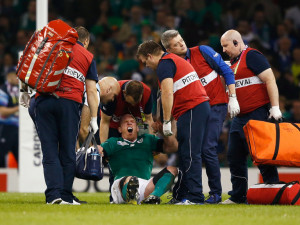
The Pumas came out in the quarter final all guns blazing and forced Ireland onto the back-foot and took an early lead but Ireland showed great character to fight back early in the second half to bring the game within 3 points. However, the Pumas were simply too strong in the last 15 minutes and managed to run in 2 tries and a penalty to seal a semi- final berth. Argentina simply looked like they wanted it more on the day, they were more structured and controlled on the field, and they defended fiercely and showed great confidence. It is arguable however that the reason Ireland failed to control the pace of the game from the start was the lack of leadership, thus epitomizing the conundrum of ‘bad luck, or not good enough’

